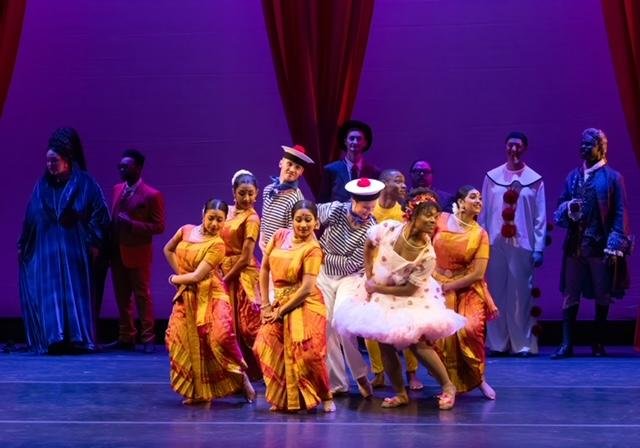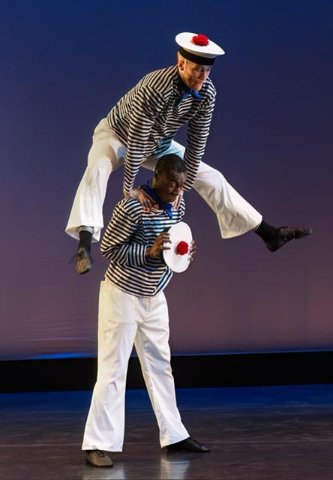Opera Lafayette’s Les Fetes de Thalie
At Museo del Barrio
By: Jessica Robinson - May 14, 2024
"Is one ever tired of laughing?" asks Thalie, the muse of comedy, in Opera Lafayette’s modern take on Jean-Joseph Mouret’s 18th century opera-ballet, Les Fetes de Thalie.
As performed at New York’s El Museo del Barrio on May 7th, the answer is decidedly “no.”
With its humorous plot and witty dialogue, laughter filled the theater from the very start. The air of triumph owed as much to the antics of the love-struck characters and the infectious energy of the dancers as to the director (Catherine Turocy), and the three choreographers—one for each of the three acts.
When Les Fetes de Thalie débuted in 1714, it broke the mold by becoming the first French opera to contain comic elements. By daring to incorporate an unusual combination of dance styles, from bhangra and tap, to ballet and hip-hop, Opera Lafayette’s bold take on this eighteenth century piece marks yet another first for Thalie.
The Prologue kicks off with a lively exchange between two sisters: the Muse of Tragedy, Melomene, (Angel Azzarra), decked out like an opera diva, and the Muse of Comedy, Thalie, ( Paulina Francisco), embodying the spirit of the East Village with her rainbow-colored wig and matching jacket. They engage in a spirited debate over which is preferable, comedy or tragedy.
Following the Prologue is a trio of tales to determine who will win the argument.
The first tale, “La Fille” (The Girl), is a whimsical plot set in Marseille where a sailor (Jonathan Woody) returns to his daughter and wife after a long absence. With him is the sea captain (Jean-Bernard Cerin) who is interested in the sailor’s daughter, Lenore, sung by Paulina Francisco. Cerin tries to woo Lenore by flirting with her very flirtatious mother, performed in drag by tenor Patrick Kilbride, who is hilariously coquettish.
In the second act, “La Veuve Coquette” (The Coquettish Widow), soprano Pascale Beaudin is cast as Isabelle, a woman who is thoroughly enjoying her recent widowhood. Attractive and charming, she has no lack of suitors, all of whom she enjoys toying with, especially a wealthy financier, (John Taylor Ward), and a military man, (Scott Brunscheen), who knock themselves out vying for her attention. Totally unimpressed, she tells them both that she feels nothing for them, and off they go with their tail between their legs.
In Act Three, “La Femme” (The Wife), the stage is set for a costume party where the intricate dynamics of marriage and fidelity are put to the test amidst a masquerade of intrigue and deception. Here the character of Caliste, portrayed by Pascale Beaudin, has decided to test her husband’s fidelity by assuming a disguise – albeit a simple mask held to her face – to tick him into believing the woman he is enamored with is another woman. Little does he know, the object of his affection is none other than his own wife.
In the epilogue, “La Critique” (The Criticism), the opera-ballet (in my opinion it’s an opera buffa), turns its gaze inward, offering a meta-theatrical reflection on the very performance unfolding before the audience’s eyes. It’s a clever and self-aware conclusion to an evening filled with laughter.
Under the baton of Christophe Rousset, Opera Lafayette’s production of the charmingly absurd Thalie was a triumph of artistry and innovation. With its contemporary flair, vibrant choreography, stellar performers, and infectious energy, the evening proved a delightful theatrical experience.
Photo credit: Jen Packard


